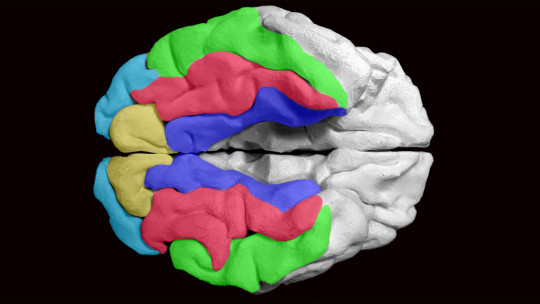People with senile dementia may have difficulty living alone safely and autonomously. Senile dementia can affect memory, judgment, or decision making. Senile dementia is a disease that affects a large part of the world’s population and affects many people who may be healthy. Even though you live with someone who appears to feel well and have no physical problems, the truth is that there are guidelines that can be followed in cases of dementia.
It is crucial to continually assess the situation of the person with dementia and adapt the level of support according to their changing needs to ensure their safety and well-being. This way, when in doubt about whether someone can live alone or not, you will have the peace of mind that you have made a good decision based on the person’s characteristics. In this PsychologyFor article, we will provide you with information about whether Can a person with senile dementia live alone
Can a person with senile dementia live alone?
The ability of a person with senile dementia to live alone depends on several factors , such as the degree of dementia, the severity of symptoms, and the level of support available. In the early stages of dementia, some people may be able to live independently with an adequate level of support and supervision.
In the advanced stages of dementia, it is unlikely A person with senile dementia cannot live alone safely, as they will surely experience significant difficulties remembering how to perform basic tasks, lose the ability to recognize dangers, or may even become disoriented in their own home. In these cases, a more structured environment is often necessary, such as care in a skilled nursing facility or living with a caregiver.
Dementia is not exclusive to old age, although it is more common in older people. It is crucial to continually assess the situation of each dementia patient and adapt the level of support according to their changing needs to ensure their safety and well-being. To understand it better, we recommend you read this article about Dementia: what it is, types, symptoms and causes.
Risks and challenges of living alone with senile dementia
Living alone with dementia presents a number of significant risks and challenges to the safety and well-being of the affected person. The most common risks and challenges are:
- Social isolation : Dementia is associated with mood disturbances and difficulties remembering important dates and events. For this reason, living alone with senile dementia could be a trigger for difficulties with personal relationships. In this article, we explain in detail the Consequences of social isolation.
- Forgetting medications : Senile dementia can affect the ability to remember to take medications as prescribed, which can have serious health consequences if they are important medications for the management of chronic diseases.
- Improper nutrition : Those suffering from this condition may forget to eat regularly or have difficulty preparing balanced and nutritious meals, which can lead to malnutrition or dehydration.
- Disorientation and loss : A person with senile dementia cannot live alone because they experience spatial and temporal disorientation, which increases the risk of getting lost or not being able to find their way home if they go out without supervision.
- Inability to manage emergencies : In the event that there is an unforeseen event that must be resolved at the moment, a person with senile dementia may not have the necessary resources to act correctly. In this sense, the need to ask for help is vital to be safe.
How to ensure the safety and well-being of a person with senile dementia who lives alone
Ensuring the safety and well-being of a person with dementia living alone requires a careful and understanding approach. Below we explain how to do it and what to keep in mind:
- Fluid communication with the doctor : To ensure a good life, the family members of the person concerned must follow the guidelines of the treating doctor. You should always have a medical emergency telephone number on hand, to be able to deal with problems that arise unexpectedly.
- Safe environment – Make modifications to the home environment to minimize safety risks, such as removing obstacles, installing grab bars in the bathroom, securing windows and doors, clearly labeling important items, and moving sharp or dangerous objects out of the way.
- Medication Assistance – Sets a medication reminder system, such as alarms or automatic pill dispensers, to help the person take their medications as prescribed. Plan the times of taking each medication on a visible sheet. The information must be clear and concise to avoid misunderstandings.
- Support net : Build a strong support network that includes family, friends, neighbors and health professionals, who can provide regular help and supervision to the person with senile dementia. If you have to help, in this article we explain how to calm a person with senile dementia.
- Community support – Connects the person with community resources, such as support groups for people with dementia and their caregivers, meal delivery programs, transportation services, and recreational activity programs.
If a person with senile dementia lives alone, it is essential to address their needs and work as a team to ensure their safety and well-being as much as possible.
This article is merely informative, at PsychologyFor we do not have the power to make a diagnosis or recommend a treatment. We invite you to go to a psychologist to treat your particular case.
If you want to read more articles similar to Can a person with senile dementia live alone? we recommend that you enter our Neurosciences category.
Bibliography
- Oliva Núñez, N., Calzado Benítez, A., Alcorta Rodríguez, T., Fernández García, A., Borges Rodríguez, O. (2020). Senile dementia: a health problem in current times. Journal of Medical-Surgical Research, 12 (1), 30-42.








